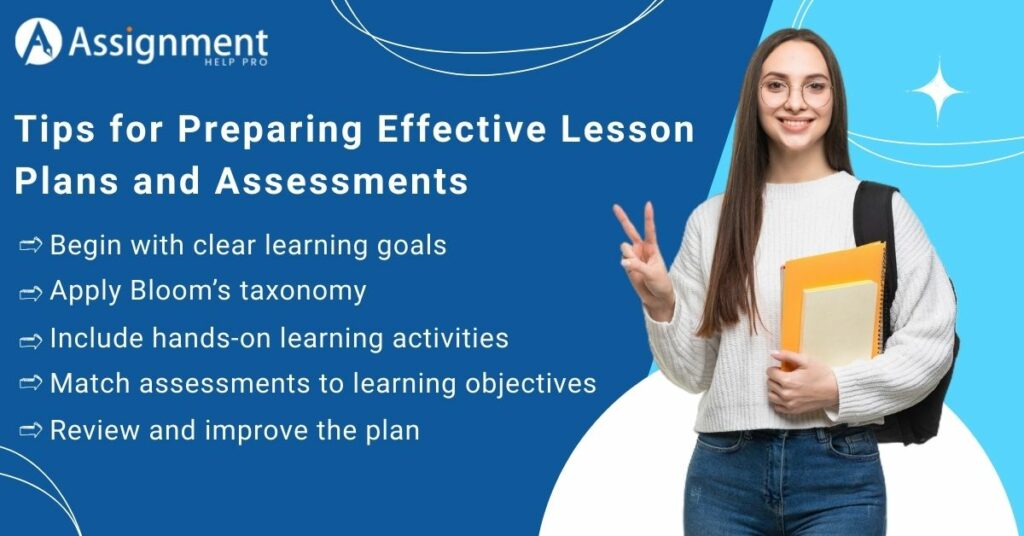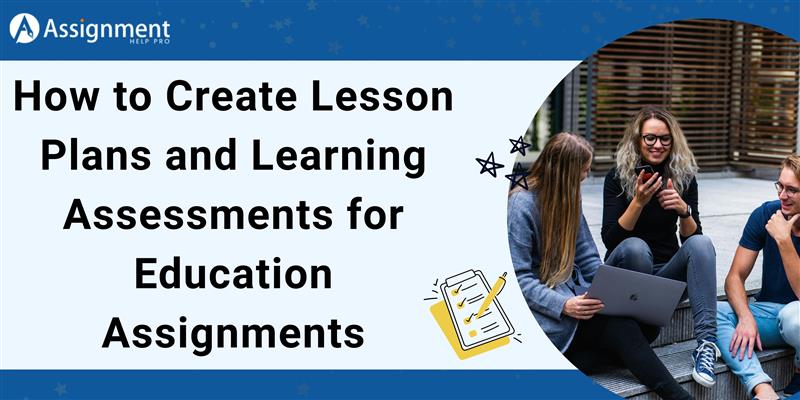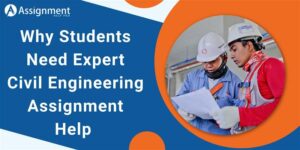You can handle teaching effectively if you know how to create lesson plans and learning assessments. To create effective lesson plans for education assignments, define clear learning objectives, choose engaging activities, and align with curriculum standards. For learning assessments, align them with objectives and provide constructive feedback to students.
In today’s busy academic world, both students and teachers are under a lot of pressure. They specifically need to create clear lesson plans and assess whether students are learning or not. If you are training to be a teacher or studying education, then you must know how to prepare lesson plans and learning assessments. Usually, while pursuing a course related to education, you will be asked to do assignments on lesson plans and assessments. As many students find it hard to balance theory, practical work, and deadlines all at once, they often seek expert education assignment help online. Instead of getting assistance from professionals, follow the tips for creating lesson plans and learning assignments recommended in this blog.
What is a Lesson Plan?
A lesson plan is more than just a list of what a teacher wants to cover in class. It acts like a guide that shows how learning will happen. It includes what students should learn, how the teacher will teach, what activities will be done, and what materials are needed. Furthermore, it explains how learning will be checked or assessed. Good lesson planning helps make teaching clear, focused, and connected to learning goals.
Main Components of a Lesson Plan
The following are the key elements that a lesson plan should contain
- Learning Objectives: These are clear and specific goals that show what students should know or be able to do by the end of the lesson. They are easy to measure and will help teachers track student progress.
- Instructional Methods: These are the different ways teachers present lessons, such as activities, discussions, videos, or lectures, to help students learn effectively.
- Differentiation: This refers to the teaching strategies and methods that teachers rely on to support students with various learning styles and skill levels.
- Assessment: It focuses on how teachers check students’ understanding during and after lessons to see their progress and needs.
- Reflection: It is a way for teachers to review what went well in a lesson and what needs improvement. This helps them make future lessons better and more effective for students.
Creating lesson plans with all these components needs both teaching knowledge and practice. As many students studying education find it hard to balance theory and real teaching, they often wish to get assignment help from an expert.
Why are Lesson Plans Important?
Lesson plans are important because they give teachers a clear guide for teaching. They help organize lessons and set goals for what students should learn. Lesson plans keep teaching focused and help students stay interested. They also make it easier for teachers to check how well students are doing and manage time and materials in class.
An Overview of Learning Assessments
Learning assessments are ways teachers check how much students have learned and remembered. There are two main types of learning assessments, such as formative assessment and summative assessment. Each type helps teachers understand how well students are doing with the material.
Formative assessments are small evaluations that happen during the learning process. Examples include quizzes, class discussions, or draft work. These help teachers give quick feedback and adjust lessons as needed. Summative assessments happen at the end of a unit to see what students have learned overall. These can be final examinations, presentations, projects, assignments, or standardized tests.
Challenges of Creating Lesson Plans and Assessments for Education Assignments
Education students often have to manage many things at once, like classes, teaching practice, part-time jobs, and personal life. Moreover, to make detailed lesson plans and assessments, they will require a lot of knowledge, time, and careful work. The following are some common challenges students face when they create lesson plans and assessments for education assignments
Lack of Time
Generally, it takes a lot of time to make good educational materials. Students often have many deadlines at once, which can make them feel stressed. As a result, they may rush their work or not finish assignments properly.
Difficulty understanding educational theories
Typically, educational theories like Bloom’s Taxonomy, Piaget’s stages of learning, or Gardner’s different types of intelligence are essential for creating lesson plans. But for beginners, understanding and using these theories can be challenging.
Tough to meet curriculum standards
Students need to make sure their lesson plans match national or regional curriculum guidelines. This means they have to look up the standards, understand them clearly, and include them in their lesson activities.
Poor Writing Skills
Education assignments need to be clear, well-organized, and properly formatted. Students who lack confidence in their writing skills often find this part challenging.
Tips for Preparing Effective Lesson Plans and Assessments
When pursuing education courses, you might be asked to prepare assignments on lesson plans and assessments. If you are unsure how to create lesson plans and learning assessments for education assignments, then follow these tips
Begin with clear learning goals
At first, clearly define what you want your students to know or be able to do by the end of the lesson. Use action verbs like “analyze,” “create,” or “evaluate” to write objectives that are specific and easy to measure.
Apply Bloom’s taxonomy
Use Bloom’s taxonomy. This step-by-step thinking model will help you build learning in stages. Always try to begin with basic skills like remembering and understanding, then move toward advanced skills like evaluating and creating.
Include hands-on learning activities
Add practical learning activities to the plan. When you involve your students in group work, hands-on activities, or interactive discussions, you can help them stay motivated and remember the material better.
Match assessments to learning objectives
Make sure each assessment directly measures the learning objectives you have set. For example, if your goal is to teach persuasive writing, your assessment should have students write a persuasive text instead of just answering multiple-choice questions.
Review and improve the plan
You can always improve your lessons and assessments. Make sure to set aside time to think about what worked well and adjust your plan as needed.
Benefits of Getting Expert Education Assignment Help
You can make a big difference in your learning experience by getting personalized education assignment help. It provides support when you are overwhelmed and ensures your work meets high standards. If you ever feel stuck, you might consider options like “pay someone to do my online class” to manage your workload effectively. The following are some potential benefits of getting expert help to do education assignments
- Save time and reduce stress by handling complex tasks
- Submit accurate and well-researched assignments on time
- Easily understand difficult concepts through quality examples
- Improve your grades with professionally written work
- Meet curriculum and formatting requirements
- Focus on other important commitments
Wrapping Up
Making good lesson plans and assessments is an important skill for future teachers. But it can also be one of the hardest parts of studying education. You might find it difficult to understand teaching theories, run out of time, or not know how to match your plans to curriculum rules. However, by following the tips suggested in this blog, you can easily handle the task. If you are still unsure how to create lesson plans and learning assessments for education assignments, then approach us immediately. We have subject specialists to offer the best education assignment help. Especially with our professional assistance, you can confidently finish your assignment and build useful skills for teaching in the future.





